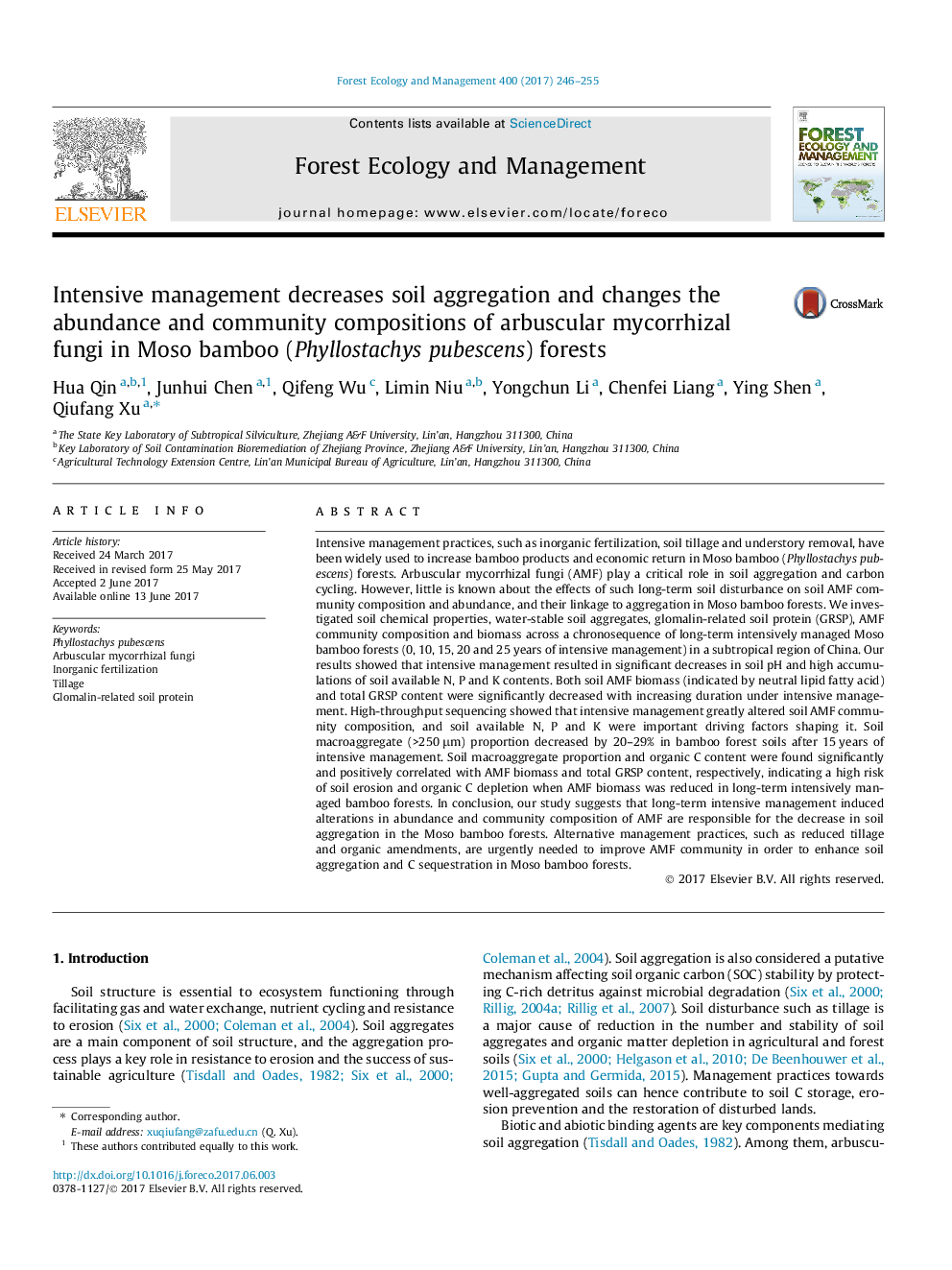| Article ID | Journal | Published Year | Pages | File Type |
|---|---|---|---|---|
| 6459239 | Forest Ecology and Management | 2017 | 10 Pages |
â¢Soil available N, P, and K were important driving factors shaping AMF community.â¢Intensive management decreased soil AMF biomass and total GRSP.â¢Soil macroaggregates was positively correlated with AMF biomass and total GRSP.â¢Long-term intensive management would lead to potential decrease of soil C storage.
Intensive management practices, such as inorganic fertilization, soil tillage and understory removal, have been widely used to increase bamboo products and economic return in Moso bamboo (Phyllostachys pubescens) forests. Arbuscular mycorrhizal fungi (AMF) play a critical role in soil aggregation and carbon cycling. However, little is known about the effects of such long-term soil disturbance on soil AMF community composition and abundance, and their linkage to aggregation in Moso bamboo forests. We investigated soil chemical properties, water-stable soil aggregates, glomalin-related soil protein (GRSP), AMF community composition and biomass across a chronosequence of long-term intensively managed Moso bamboo forests (0, 10, 15, 20 and 25 years of intensive management) in a subtropical region of China. Our results showed that intensive management resulted in significant decreases in soil pH and high accumulations of soil available N, P and K contents. Both soil AMF biomass (indicated by neutral lipid fatty acid) and total GRSP content were significantly decreased with increasing duration under intensive management. High-throughput sequencing showed that intensive management greatly altered soil AMF community composition, and soil available N, P and K were important driving factors shaping it. Soil macroaggregate (>250 μm) proportion decreased by 20-29% in bamboo forest soils after 15 years of intensive management. Soil macroaggregate proportion and organic C content were found significantly and positively correlated with AMF biomass and total GRSP content, respectively, indicating a high risk of soil erosion and organic C depletion when AMF biomass was reduced in long-term intensively managed bamboo forests. In conclusion, our study suggests that long-term intensive management induced alterations in abundance and community composition of AMF are responsible for the decrease in soil aggregation in the Moso bamboo forests. Alternative management practices, such as reduced tillage and organic amendments, are urgently needed to improve AMF community in order to enhance soil aggregation and C sequestration in Moso bamboo forests.
